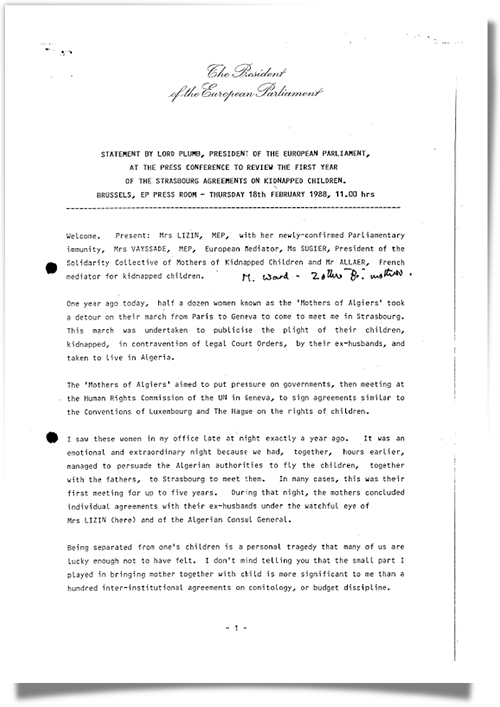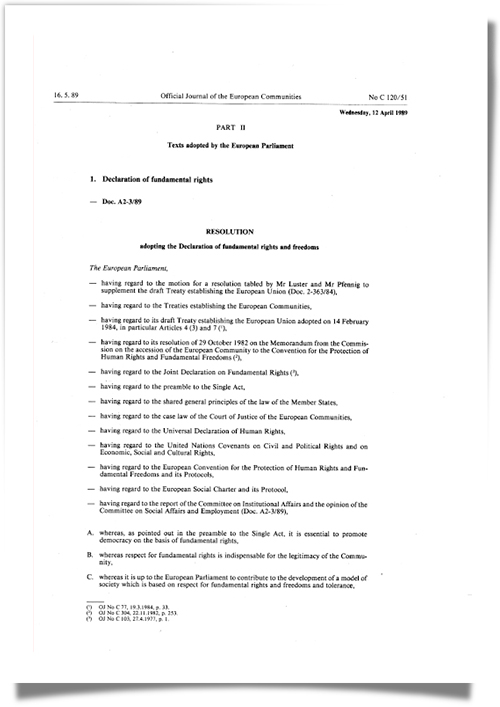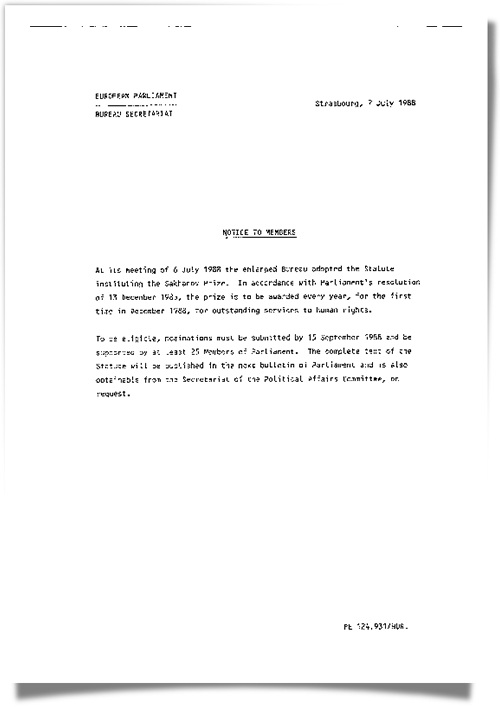The European Parliament Mediator for International Parental Child Abduction
Lord Plumb personally and actively supported numerous activities related to human rights. On 18 February 1987, for example, he received the 'Mothers of Algiers', a group of women who had been awarded custody of their children by French courts, but whose ex-husbands had abducted the children and were preventing them from leaving Algeria.

Statement by Lord Plumb, European Parliament President (PDF): Press conference to review the first year of the Strasbourg agreements on kidnapped children. Brussels, 18 February 1988.
Strasbourg was an important stopping-place on the Mothers' march from Paris to Geneva, which took place from 10 February to 4 March 1987. Their goal was to submit a draft recommendation on freedom of movement to the Geneva-based UN Commission on Human Rights and have it included in the draft Convention on the Rights of the Child.
The Mothers of Algiers also attended a plenary sitting in Strasbourg and delivered a petition to the President of the European Parliament.
On 24 February 1987, Lord Plumb wrote to all the Member States to inform them of Parliament's role in the Mothers' initiative and of his personal support. The post of European Parliament Mediator for International Parental Child Abduction was established on 20 March 1987 on his initiative in order to help children of failed binational marriages who had been abducted by a parent.
Lord Plumb was to recall his meeting with the Mothers in an emotional speech a year later in which he took stock of the progress achieved.
More related content
Sakharov Prize 1988: Award ceremony Anatoli Marchenko (posthumously) and Nelson Rolihlahla Mandela (in absentia)
The European Community and Fundamental Rights
By the end of the seventies, pressure had mounted for an overt acknowledgement by the Communities of the human rights dimension of their activities. The European Parliament had continued to press for the incorporation of fundamental human rights within the Community Treaties and in May 1989 proposed the adoption of a declaration of fundamental rights as part of a 'Constitution' for the Communities. The Parliament had, in tandem, advocated for the accession of the European Community to the European Court of Human Rights.

European Parliament Declaration of Fundamental Rights - the adopted text (PDF), 12 April 1989.
Sakharov Prize for Freedom of Thought
In December 1985 the European Parliament established the Sakharov Prize for Freedom of Thought with a view to honouring individuals or organizations who have made the defence of human rights and fundamental freedoms their life's work.

Notice to the members (PDF), Strasbourg, 7 July 1988
When the prize was established, the man after whom it is named, Andrei Sakharov, the renowned physicist, member of the Academy of Sciences, dissident and 1975 Nobel Peace Prize winner, was living in internal exile in the closed city of Gorky. From there Sakharov sent a message to the European Parliament saying how moved and delighted he was to know that the European Parliament was founding a prize for freedom of thought which would bear his name. As Sakharov wrote in a letter to Lord Plumb shortly before the prize was awarded for the first time, he saw this both as a tribute to his struggle for recognition of human rights and an encouragement to all those who, like him, had devoted themselves to this cause.
The European Parliament awarded the 1988 Sakharov Prize to Anatoli Marchenko (posthumously), and Nelson Mandela, represented by his grandson Mandla Mandela (when he was awarded the prize in 1988 Mandela was still under house arrest).


